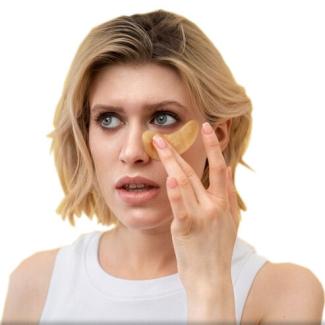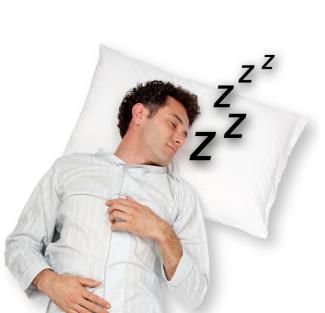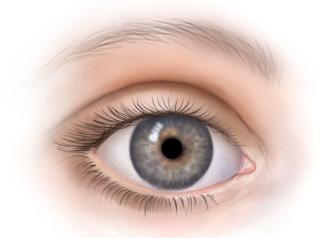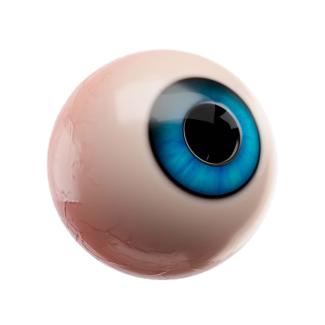
Swollen face and puffy eyes are common symptoms that can occur in people of all ages and genders. These conditions are often caused by various factors, ranging from lifestyle choices, such as poor diet or lack of sleep, to underlying medical conditions, such as allergies, infections, or systemic diseases. In most cases, a swollen face and puffy eyes are temporary and subside on their own. However, there are numerous strategies and treatments that can help reduce the swelling more quickly and prevent future occurrences.
This comprehensive guide will explore the various causes of a swollen face and puffy eyes, how to effectively treat these symptoms, and methods for preventing them. We'll also delve into the anatomy of the face and eyes to better understand why swelling occurs in these areas and the clinical significance of this common condition.
1. Anatomy of the Face and Eyes: Why Swelling Occurs
Before diving into specific causes and treatments, it’s essential to understand the anatomy of the face and eyes. The face consists of muscles, bones, blood vessels, nerves, and a network of lymphatic tissues. Facial muscles control expressions, and blood vessels supply oxygen and nutrients to the tissues. The skin on the face is thinner in some areas than others, especially around the eyes, making it more susceptible to swelling.
The area around the eyes, in particular, is delicate and prone to puffiness. This region, known as the periorbital area, contains thin skin and lacks the supportive tissue that exists in other parts of the body. This combination of factors makes it easier for fluid to accumulate, leading to puffiness and swelling.
2. Causes of Swollen Face and Puffy Eyes
A swollen face and puffy eyes can be triggered by several factors, ranging from mild, everyday irritants to serious medical conditions. Identifying the root cause is critical for effective treatment. Below, we’ll explore the most common causes of swelling in these areas.
A. Allergies
Allergic reactions are a common cause of facial swelling and puffy eyes. When an allergen enters the body, the immune system releases histamines, which cause inflammation and an increase in blood vessel permeability. This allows fluid to escape into surrounding tissues, leading to swelling.
Common allergens include:
- Pollen, dust mites, and mold
- Pet dander
- Foods such as shellfish, peanuts, or eggs
- Insect bites or stings
- Certain medications
Symptoms of allergic reactions include:
- Puffy eyes
- Redness, itching, or watery eyes
- Swelling of the face, particularly around the eyes, lips, or cheeks
- Sneezing, nasal congestion, and other respiratory symptoms
Treatment for allergies:
- Over-the-counter antihistamines such as cetirizine or loratadine can help alleviate symptoms.
- Avoiding known allergens is key to preventing future episodes of swelling.
- Prescription medications such as corticosteroid nasal sprays or eye drops may be necessary for more severe reactions.
- For chronic allergies, an allergist may recommend immunotherapy (allergy shots) to help desensitize the immune system.
B. Sinusitis
Sinusitis, or inflammation of the sinuses, is another common cause of a swollen face and puffy eyes. The sinuses are air-filled spaces located within the bones of the face, and when they become inflamed due to an infection or allergies, they can block mucus drainage and cause pressure buildup. This results in swelling, particularly around the cheeks, eyes, and forehead.
Symptoms of sinusitis include:
- Puffy eyes, especially in the morning
- Swelling in the cheeks, nose, and forehead
- Nasal congestion, thick mucus, and post-nasal drip
- Facial tenderness and pressure, often worsened by leaning forward
- Headaches and fatigue
Treatment for sinusitis:
- Decongestants and saline nasal sprays can help relieve congestion and promote mucus drainage.
- Warm compresses applied to the face can help relieve sinus pressure.
- Antibiotics may be necessary for bacterial sinus infections, while viral sinus infections typically resolve on their own.
- For chronic or severe sinusitis, a doctor may recommend corticosteroid nasal sprays or, in some cases, sinus surgery to improve drainage.
C. Dehydration
Dehydration can also cause facial swelling and puffy eyes. When the body becomes dehydrated, it tends to retain water as a protective mechanism, leading to fluid buildup in areas like the face, particularly under the eyes.
Symptoms of dehydration include:
- Dry or flaky skin
- Dizziness and fatigue
- Dark urine or infrequent urination
- Swelling, especially around the eyes and cheeks
Treatment for dehydration:
- Drinking plenty of water is the most effective way to combat dehydration-related swelling.
- Aim to drink at least eight glasses of water a day, or more if you are active or live in a hot climate.
- Consuming hydrating foods such as cucumbers, watermelon, and celery can also help increase fluid intake.
D. High Sodium Intake
Excessive salt consumption can cause the body to retain water, leading to swelling in various parts of the body, including the face. This is because sodium causes an imbalance in the body's fluid levels, leading to bloating and water retention.
Symptoms of high sodium intake include:
- Puffy eyes, especially upon waking up
- Swelling in the hands, feet, and face
- Increased thirst and bloating
- High blood pressure
Treatment for high sodium intake:
- Reducing sodium intake is essential. The American Heart Association recommends limiting sodium to no more than 2,300 milligrams per day, with an ideal goal of 1,500 milligrams.
- Avoid processed foods, canned goods, and salty snacks, as these often contain high amounts of sodium.
- Drinking plenty of water can help flush excess sodium from the body.
E. Sleep Deprivation
Not getting enough sleep can cause puffiness around the eyes and a swollen face. Sleep deprivation disrupts the body's fluid balance, leading to fluid retention, especially in the periorbital area (around the eyes).
Symptoms of sleep deprivation include:
- Puffy eyes, particularly in the morning
- Dark circles under the eyes
- Swollen face
- Fatigue, irritability, and difficulty concentrating
Treatment for sleep deprivation:
- Aim for 7-9 hours of sleep per night to allow the body enough time to rest and recover.
- Elevating the head with an extra pillow while sleeping can help reduce fluid buildup in the face.
- Reducing caffeine intake in the evening and establishing a relaxing bedtime routine can improve sleep quality.
F. Hormonal Changes
Hormonal changes, especially during menstruation, pregnancy, or menopause, can lead to water retention and facial swelling. Hormones such as estrogen can cause the body to retain more fluid, leading to puffiness in the face and eyes.
Symptoms of hormonal changes include:
- Puffy eyes, particularly around the time of menstruation
- Breast tenderness and bloating
- Swollen face, especially upon waking up
- Weight gain due to fluid retention
Treatment for hormonal changes:
- Regular physical activity can help reduce fluid retention by promoting circulation and sweating.
- Reducing salt intake and staying hydrated can help manage hormonal water retention.
- In some cases, hormonal imbalances may require medical treatment, such as hormone replacement therapy (HRT) or birth control pills, to help regulate symptoms.
G. Medical Conditions
Several medical conditions can cause chronic or severe swelling of the face and eyes. Some of the most common include:
- Hypothyroidism: This condition occurs when the thyroid gland does not produce enough thyroid hormones, leading to fluid retention and swelling, particularly in the face.
- Kidney Disease: Kidney problems can cause the body to retain excess fluid, leading to swelling in the face and other parts of the body.
- Cushing’s Syndrome: This condition results from prolonged exposure to high levels of cortisol, a hormone that can cause fat deposits and swelling in the face, leading to the characteristic "moon face" appearance.
- Angioedema: This is a serious allergic reaction that causes deep swelling beneath the skin, especially around the eyes, lips, and throat. It requires immediate medical attention, as it can be life-threatening if the swelling blocks the airways.
Symptoms of underlying medical conditions include:
- Persistent or unexplained swelling
- Weight gain, fatigue, and changes in appetite
- Difficulty breathing or swallowing (in the case of angioedema)
- Swelling in other parts of the body, such as the legs, feet, or abdomen
Treatment for medical conditions:
- For hypothyroidism, treatment involves hormone replacement therapy (levothyroxine) to normalize thyroid hormone levels and reduce fluid retention.
- In cases of kidney disease, diuretics (water pills) may be prescribed to help remove excess fluid from the body.
- Cushing’s syndrome may require medications to reduce cortisol levels, or in severe cases, surgery to remove a tumor causing excess hormone production.
- Angioedema is a medical emergency and requires immediate treatment with antihistamines, corticosteroids, and epinephrine.
H. Trauma or Injury
Injury to the face can result in swelling and bruising. Trauma can cause inflammation and increased blood flow to the affected area, leading to localized swelling. Injuries around the eyes may result in a black eye, also known as periorbital hematoma.
Symptoms of trauma or injury include:
- Swelling and bruising at the site of the injury
- Pain or tenderness in the affected area
- Difficulty opening the eyes if the swelling is severe
- Visual changes if the eye is directly impacted
Treatment for trauma or injury:
- Applying cold compresses to the injured area can help reduce swelling and inflammation.
- Pain relievers such as ibuprofen or acetaminophen can help manage pain and reduce inflammation.
- In cases of severe trauma, such as fractures or deep cuts, medical intervention may be required, including surgery to repair broken bones or stitches for lacerations.
3. How to Get Rid of a Swollen Face and Puffy Eyes
Now that we have explored the various causes of facial swelling and puffy eyes, let's dive into the most effective treatments and remedies to reduce swelling in these areas. Treatments can range from home remedies to medical interventions, depending on the severity of the swelling and the underlying cause.
A. Home Remedies for Swollen Face and Puffy Eyes
For mild cases of swelling caused by non-serious factors such as dehydration, poor diet, or lack of sleep, home remedies can be highly effective.
1. Cold Compresses
Cold compresses can help constrict blood vessels, reduce inflammation, and alleviate swelling. You can use a cold washcloth, a gel eye mask, or a bag of frozen peas wrapped in a cloth.
How to use:
- Apply the cold compress to the swollen area for 10-15 minutes at a time.
- Repeat several times a day as needed.
Benefits:
- Reduces inflammation and puffiness
- Soothes discomfort
- Helps to shrink blood vessels and improve circulation
2. Hydration
One of the simplest and most effective ways to reduce swelling in the face and around the eyes is to stay properly hydrated. Drinking enough water helps flush out excess salt and toxins from the body, which can contribute to water retention.
How to use:
- Aim to drink at least eight glasses of water per day.
- If you are physically active, or live in a hot climate, you may need to increase your water intake.
Benefits:
- Prevents water retention
- Keeps skin hydrated and healthy
- Aids in detoxification
3. Elevating the Head While Sleeping
Elevating your head while you sleep can prevent fluid from pooling in the face and around the eyes overnight. This can reduce morning puffiness.
How to use:
- Use an extra pillow to prop up your head while sleeping.
- If you tend to sleep on your back, try sleeping with your head slightly elevated to encourage fluid drainage.
Benefits:
- Reduces fluid buildup and morning puffiness
- Promotes better circulation
4. Cutting Down on Salt
Reducing your sodium intake can have a significant impact on facial swelling. Too much sodium causes the body to retain water, leading to bloating and puffiness.
How to use:
- Limit your daily sodium intake to less than 2,300 milligrams, as recommended by the American Heart Association.
- Avoid processed foods, salty snacks, and fast food, as these often contain high levels of sodium.
Benefits:
- Prevents water retention
- Reduces bloating and puffiness
- Supports overall cardiovascular and kidney health
5. Herbal Teas
Certain herbal teas, such as green tea, chamomile, and dandelion tea, have natural diuretic properties that can help reduce swelling by promoting fluid excretion.
How to use:
- Drink 1-2 cups of herbal tea daily to reduce puffiness and promote fluid balance.
Benefits:
- Helps flush out excess fluids
- Reduces inflammation
- Supports overall detoxification
6. Facial Massage and Lymphatic Drainage
A gentle facial massage can stimulate lymphatic drainage and help reduce swelling in the face and around the eyes. Focus on the areas around the eyes, cheeks, and jawline to encourage fluid movement.
How to use:
- Use your fingertips to gently massage the swollen areas in circular motions.
- You can also use a jade roller or gua sha tool to enhance the lymphatic drainage process.
Benefits:
- Stimulates lymphatic drainage
- Reduces fluid retention and puffiness
- Improves circulation and skin elasticity
B. Medical Treatments for Persistent or Severe Swelling
In cases where facial swelling and puffy eyes are caused by an underlying medical condition or persist despite home remedies, medical treatment may be necessary.
1. Antihistamines for Allergies
If swelling is caused by an allergic reaction, over-the-counter or prescription antihistamines can help reduce the body's immune response and alleviate swelling.
Common antihistamines include:
- Cetirizine (Zyrtec)
- Loratadine (Claritin)
- Diphenhydramine (Benadryl)
Benefits:
- Reduces swelling, itching, and inflammation caused by allergens
- Alleviates other allergy symptoms such as sneezing and nasal congestion
2. Corticosteroids
For more severe allergic reactions or inflammatory conditions, corticosteroids may be prescribed to reduce swelling. These can be administered orally, topically, or through injections, depending on the severity of the condition.
Common corticosteroids include:
- Prednisone (oral)
- Hydrocortisone cream (topical)
- Dexamethasone (injection)
Benefits:
- Reduces inflammation and immune response
- Alleviates swelling and pain
3. Antibiotics for Infections
If an infection is causing facial swelling, such as in the case of sinusitis or cellulitis, antibiotics may be necessary to treat the underlying infection and reduce swelling.
Common antibiotics include:
- Amoxicillin
- Doxycycline
- Cephalexin
Benefits:
- Treats bacterial infections
- Reduces swelling and inflammation
4. Diuretics for Fluid Retention
Diuretics, also known as "water pills," may be prescribed to reduce fluid retention caused by conditions such as kidney disease, heart failure, or hormonal imbalances. These medications help the body eliminate excess water through urine.
Common diuretics include:
- Furosemide (Lasix)
- Hydrochlorothiazide
Benefits:
- Reduces water retention and facial swelling
- Improves overall fluid balance
5. Thyroid Hormone Replacement for Hypothyroidism
If hypothyroidism is the cause of facial swelling, thyroid hormone replacement therapy can help regulate hormone levels and reduce fluid retention.
Common treatment:
- Levothyroxine
Benefits:
- Corrects hormone imbalance
- Reduces swelling and improves energy levels
6. Surgical Intervention for Trauma
In cases where facial swelling is due to significant trauma or injury, surgical intervention may be necessary to repair damage, reduce swelling, and prevent further complications.
Procedures may include:
- Fracture repair
- Soft tissue reconstruction
- Drainage of fluid build-up
Benefits:
- Corrects structural damage
- Reduces inflammation and pain
- Improves facial appearance and function
4. Prevention: How to Avoid Swollen Face and Puffy Eyes in the Future
Preventing facial swelling and puffy eyes often involves making lifestyle changes to avoid common triggers and improve overall health. Here are some strategies to minimize the likelihood of future swelling:
A. Maintain a Balanced Diet
A balanced diet that is low in sodium and high in fresh fruits and vegetables can help prevent fluid retention and reduce the risk of facial swelling. Foods rich in potassium, such as bananas, avocados, and leafy greens, can help counteract the effects of sodium and promote a healthy fluid balance.
Benefits:
- Supports healthy fluid balance
- Reduces bloating and puffiness
- Improves overall health and well-being
B. Exercise Regularly
Regular physical activity promotes circulation and helps prevent fluid retention. Exercise also supports the lymphatic system, which plays a key role in reducing swelling and inflammation.
Benefits:
- Improves blood circulation
- Stimulates lymphatic drainage
- Reduces the risk of swelling
C. Get Enough Sleep
Ensuring that you get 7-9 hours of quality sleep each night can help prevent the fluid retention and puffiness often associated with sleep deprivation.
Benefits:
- Prevents fluid accumulation
- Reduces puffiness around the eyes
- Improves overall health and skin appearance
D. Avoid Excessive Alcohol Consumption
Alcohol can dehydrate the body and lead to fluid retention, particularly in the face. Limiting alcohol consumption can reduce the likelihood of facial swelling and puffiness.
Benefits:
- Prevents dehydration and bloating
- Reduces puffiness and improves skin health
E. Stay Hydrated
Drinking plenty of water throughout the day can help prevent dehydration-related swelling. Staying hydrated ensures that the body maintains proper fluid balance and prevents excessive fluid retention.
Benefits:
- Reduces facial puffiness
- Improves skin hydration and elasticity
- Supports overall bodily functions
5. When to Seek Medical Help
While a swollen face and puffy eyes are usually temporary and mild, there are instances where they may indicate a more serious underlying condition. Seek medical attention if:
- The swelling is sudden, severe, or accompanied by difficulty breathing (this could indicate anaphylaxis or angioedema).
- The swelling persists for more than a few days without improvement.
- You experience other symptoms such as fever, pain, or difficulty swallowing.
- You have a history of kidney, thyroid, or heart disease, which may be contributing to the swelling.
Swollen face and puffy eyes are common conditions that can be caused by a variety of factors, ranging from minor lifestyle habits to serious medical conditions. Identifying the underlying cause is key to determining the most effective treatment. In most cases, home remedies such as cold compresses, hydration, and dietary adjustments can help reduce facial swelling and puffy eyes. For persistent or severe swelling, medical treatment may be necessary. By understanding the causes and adopting preventive measures, you can minimize the risk of future swelling and maintain a healthy, refreshed appearance.






